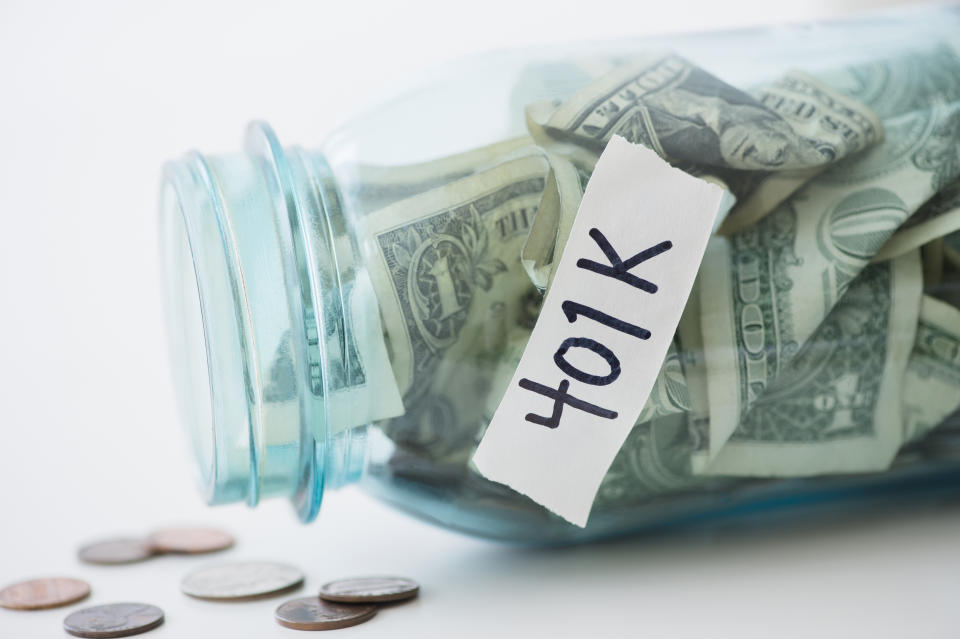13 High-Interest Savings Accounts That Don't Require Big Minimums
Ever since the Great Recession, interest rates have been at rock bottom. That’s great for anyone who wants to borrow money. But for savers? Not so much. The average savings account rate today is a measly 0.10%, according to the Federal Deposit Insurance Corp. So if you’re trying to save money, don’t expect a ton of help from your bank.
Even so, there are some banks offering above-average savings account interest rates. In fact, you can find rates upwards of 2.00% ― if you take your money online. The best part is that many don’t require you to deposit a ton of cash in order to get these rates.

Online Banks: Where The Money Is
Though you’re not going to find jaw-dropping savings account rates anywhere, online banks definitely have a leg up on brick-and-mortar institutions. That’s because online banks have much fewer overhead costs thanks to having no physical locations, less staff and fewer administrative costs overall. They can then pass those savings on to customers in the form of higher rates and lower fees.
The trade-off is that you’re likely not going to find a comprehensive suite of services. Most online banks are fairly bare-bones when it comes to the products and services they offer. They can be a great place to park cash at a higher rate, but not so awesome if you conduct many transactions or expect a lot of personal attention.
So if you have a chunk of savings that’s sitting around and not earning interest, but you don’t want to lock it up in the stock market, consider putting it in an online savings account. Most allow you to make up to six withdrawals per month without incurring a penalty, and transfers only take a couple of days, so your emergency fund or home down payment will always be accessible when you need it.
Best High-Yield Savings Account Rates Today
If an online bank sounds like the ideal place to put your savings, there are lots of options. The 13 banks below all offer savings interest rates above 2.00% APY while also requiring a minimum opening deposit and minimum balance of $100 or less (in most cases it’s $0). Some also offer other perks, such as free checking and robust mobile banking.
It’s important to note that all interest rates are accurate as of June 12, 2019, but are subject to change any time at the discretion of individual institutions. Before opening an account, contact the bank to verify rates.
Savings account rate: 2.52% APY
Minimum opening deposit: $100
Minimum balance: None
The highest savings account rate on the list comes from Vio Bank. It’s not exactly a household name, but you should rest assured that Vio is the online bank division of MidFirst Bank, one of the largest privately owned U.S. banks. It’s also FDIC-insured, meaning your deposits are protected up to $250,000 if the bank were to fail. The high-yield savings account from Vio requires a minimum deposit of $100 ― one of the highest on this list, but still reasonable for anyone who’s serious about starting to save.
Savings account rate: 2.51% APY
Minimum opening deposit: $100
Minimum balance: None
The eOne savings account from Salem Five Direct offers an impressive 2.51% APY on balances up to $1,000,000 (if you have more than that, you’re in the wrong place). It also requires a minimum opening deposit of $100.
Savings account rate: 2.48% APY
Minimum opening deposit: $100
Minimum balance: None
The high-yield savings account from Comenity Direct Bank is a new product, launched earlier this year. There’s no ATM or debit card for this account, but you can use the Comenity Direct mobile app to make deposits and withdrawals, as well as check your balance, contact customer service and more.
Savings account rate: 2.40% APY
Minimum opening deposit: $0
Minimum balance: None
MySavingsDirect is the online banking division of Emigrant Bank, the oldest savings bank in New York. Note that the MySavings Account from MySavingsDirect doesn’t offer ATM access or a mobile app. You’ll need to link another account in order to make transfers, deposits and withdrawals.
Savings account rate: 2.36% APY
Minimum opening deposit: $0
Minimum balance: None (with a catch)
As a major bank that’s usually associated with credit cards, it might be surprising to find Citibank on this list. The Citi Accelerate savings account from Citibank must be opened as part of one of its banking packages. It also charges a monthly fee of $4.50, which could take a pretty big bite out of interest earnings. To get around this fee, you have to maintain an average monthly balance of at least $500. This particular account is also only available in 41 states.
Savings account rate: 2.30% APY
Minimum opening deposit: $1
Minimum balance: None
HSBC allows you to make deposits and withdrawals at any physical retail location, or you can transfer funds to another account. Keep in mind that if you close the account within 180 days of opening, you’ll be charged a $25 fee.
Savings account rate: 2.25% APY
Minimum opening deposit: $0
Minimum balance: None
Marcus is the consumer banking and lending side of investment bank Goldman Sachs. There are no bank branches, ATMs or mobile app, so in order to use this account, you’ll need to link another bank account for transferring money.
Savings account rate: 2.25% APY
Minimum opening deposit: $0
Minimum balance: None
Synchrony Bank is an online bank that offers a variety of savings options. It’s known for its high rates that require no minimum balance or fees. Currently, you can earn 2.25% APY with the high-yield savings account.
Savings account rate: 2.25% APY
Minimum opening deposit: $1
Minimum balance: None
FNBO Direct, the online division of First National Bank of Omaha, offers an impressive 2.25% APY on its savings account. The account relies on Popmoney, a peer-to-peer payment app, to send and receive money.
Savings account rate: 2.20% APY
Minimum opening deposit: $0
Minimum balance: None
Ally Bank, which operates exclusively online, offers quite a few financial services, including deposit accounts, loans and investing. By opening a savings account, you also get a free checking account, though checks and debit card aren’t included. You can make deposits via direct deposit, online transfer, wire transfer, mail and remote check deposit through the app.
Savings account rate: 2.20% APY
Minimum opening deposit: $0
Minimum balance: None
Though the interest rate is competitive and there are no fees or minimums, the banking services offered through Barclays are somewhat limited. There are no checking account options, no ATMs and no branch locations. However, Barclays offers a mobile banking app that allows you to deposit checks, send money, check your balance and more.
American Express National Bank
Savings account rate: 2.10% APY
Minimum opening deposit: $0
Minimum balance: None
You can link up to three online banking accounts to the Amex platform, which allows you to transfer funds 24/7. However, only credit card customers have access to a mobile app, so you won’t be able to deposit checks directly.
Savings account rate: 2.10% APY
Minimum opening deposit: $0
Minimum balance: None
Rounding out the list is the online savings account from Discover Bank, which offers a great rate with no minimum deposit requirements or maintenance fees. Discover also offers a few perks such as an easy-to-use app, mobile check deposit, account transfers and more.
Related Coverage
11 Experts Share Their Best Ideas On How To Save Money In 2019
7 Smart Money Moves To Make In 2019, According To Experts
CD Rates Are On The Rise ― Is Now The Time To Buy?
Also on HuffPost
Roll Over Your Old 401(k)

Switch Banks

Negotiate With Your Internet Provider

Complete A Health Assessment

Sign Up For Auto-Pay

Rethink Your Health Insurance

Skim Your Bank Statements

Listen To A Personal Finance Podcast

Switch To A Prepaid Cellphone Plan

Set It And Forget It

Love HuffPost? Become a founding member of HuffPost Plus today.
This article originally appeared on HuffPost.

